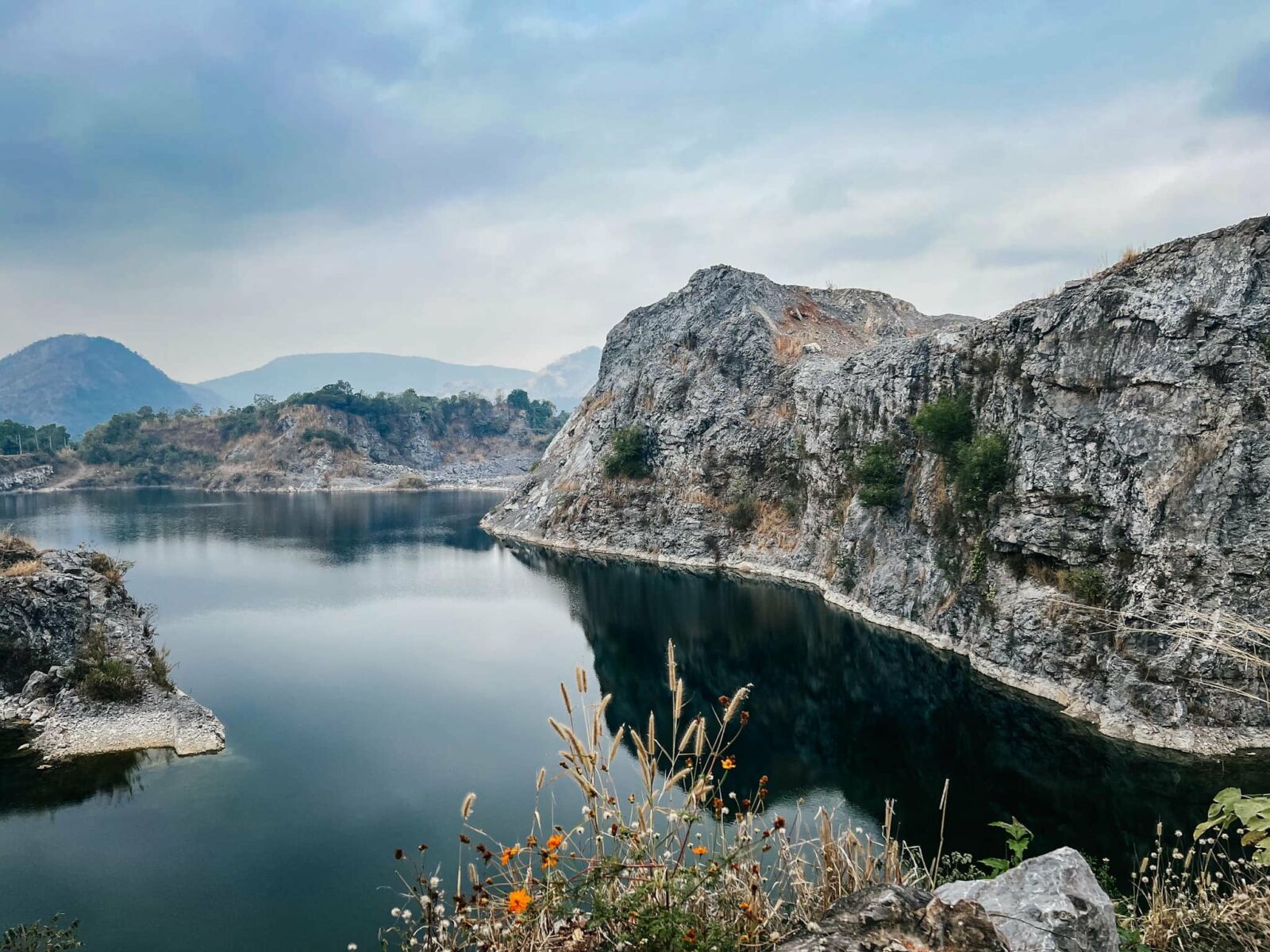‘Blue Lagoon’ promoted as tourist attraction in Khon Kaen, Thailand

An abandoned limestone quarry-turned-reservoir dubbed the “Blue Lagoon” is being promoted as a tourist attraction in Khon Kaen, northeast Thailand.
Locals said that water seeped into the abandoned old quarry site until it turned into a beautiful reservoir, attracting tourists wanting to catch a glimpse of the emerald water glistening under the sun.
INN News describes the Blue Lagoon as “a new tourist attraction that cannot be missed with the charm of emerald green water, surrounded by limestone cliffs, in an area of more than 100 rai.”
The lagoon is located in the Na Fai subdistrict in Phu Pha Man district, around an hour and a half’s drive from Khon Kaen City. Now that more tourists are visiting, vendors selling refreshments and food have opened at the site.
One tourist, 43 year old Phatpicha Thitanakphan, said she saw pictures of the old quarry online. She drove from Bangkok to Phu Pha district to visit friends, so she decided to visit the Blue Lagoon. She and her friends took photos at the quarry, which she said is even more beautiful in real life. She encouraged tourists to check it out.
A local shop owner, 57 year old Niang Daiphukhao, said that more and more tourists are visiting the site. She encouraged the relevant agencies to properly signpost the Blue Lagoon to help tourists find their way.
The Thai report did not mention if any safety measures would be implemented at the site, or whether swimming would be permitted. A swim in the Blue Lagoon might look like a lovely way to cool off, but it could be dangerous. One UK website warns that jumping into a quarry could be a fatal mistake with rocks, debris, toxic algae, strong currents, and cold, deep water lurking beneath.
Saying that, the Grand Canyon in Chiang Mai is a converted quarry and a popular swimming site among tourists. Although, the canyon doesn’t have the greatest safety record, with most incidents and fatalities at the canyon in recent years involving cliff jumping and ziplining.
In 2017, a 22 year old member of staff, Haris Husen from Nonthaburi, died at the Grand Canyon waterpark after attempting to make repairs to the assault course under the water. Haris didn’t come back up and drowned. The exact reason he drowned is unknown.
The Grand Canyon has made improvements after being criticised for its safety standards. Now, lifeguards are on duty at all times and tourists are required to wear life jackets in the water.
According to the Ministry of Public Health, the rate of fatal drowning accidents in Thailand is at least five times higher than in “developed countries.”
In 2021, the World Health Organisation estimated that Thailand had the second-highest drowning rate in Thailand.
Latest Thailand News
Follow The Thaiger on Google News:


























